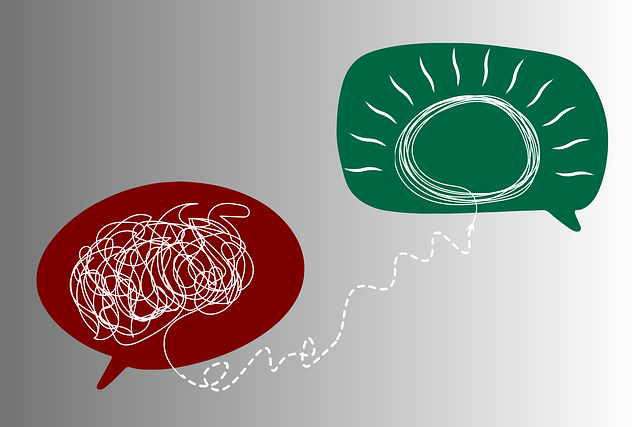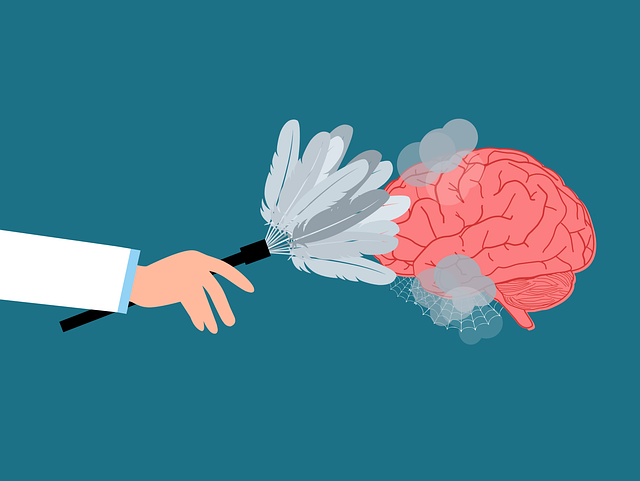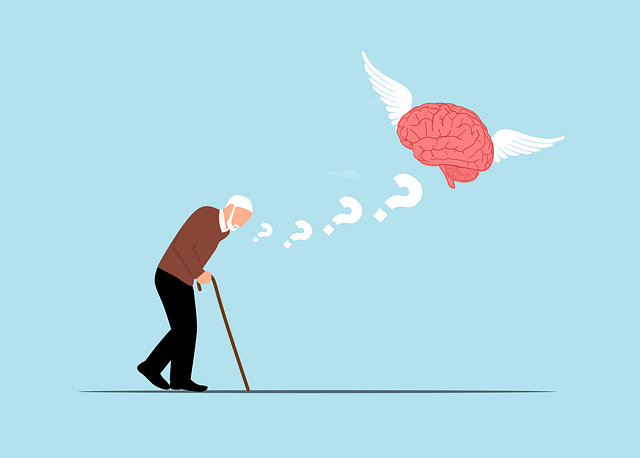Emotion regulation through techniques like cognitive reappraisal, behavioral activation, and mindfulness practices is a cornerstone of Superior Spiritual-Religious Issues Therapy. Combining these methods with spiritual guidance and cultural sensitivity helps individuals manage stress, anxiety, and emotional challenges, fostering mental wellness and stronger relationships. Mindfulness meditation, integrated into CBT for example, shows effectiveness in improving emotional control and coping mechanisms. Case studies and public awareness campaigns further highlight the importance of these techniques in navigating life's complexities gracefully and building long-term resilience.
Emotion regulation techniques have become a cornerstone of modern therapy, empowering individuals to navigate life’s challenges with resilience. This comprehensive guide delves into the intricate world of emotional wellbeing, exploring spiritual-religious beliefs’ profound impact on mental health (superior spiritual-religious issues therapy). We unravel the concept of emotion regulation, offering insights into effective teaching techniques within therapeutic settings. From mindfulness and meditation practices to inspiring case studies, this article provides a holistic approach to understanding and mastering emotion regulation skills.
- Understanding Emotion Regulation: Unraveling the Concept
- The Role of Spiritual-Religious Beliefs in Emotional Wellbeing
- Techniques for Teaching Emotion Regulation in Therapy
- Incorporating Mindfulness and Meditation Practices
- Case Studies: Success Stories in Emotion Regulation Therapy
Understanding Emotion Regulation: Unraveling the Concept

Emotion regulation is a pivotal skill that allows individuals to understand, manage, and adapt to their emotional responses in various situations. It involves recognizing and accepting emotions as they arise while also controlling them from overwhelming one’s thoughts and actions. This intricate process is essential for maintaining mental wellness and fostering positive relationships, especially within the context of Superior Spiritual-Religious Issues Therapy. By learning effective emotion regulation techniques, individuals can enhance their ability to cope with stress, anxiety, and other emotional challenges, leading to improved overall well-being.
The concept of emotion regulation encompasses a range of strategies, from cognitive reappraisal (altering thoughts to change emotions) to behavioral activation (engaging in activities that promote positive moods). These techniques are invaluable for personal growth and self-care, enabling individuals to navigate life’s complexities with resilience. Moreover, integrating practices like Positive Thinking and Mental Wellness Coaching Programs Development can further enhance emotion regulation skills, ultimately contributing to a more balanced and fulfilling life.
The Role of Spiritual-Religious Beliefs in Emotional Wellbeing

Spiritual or religious beliefs can play a significant role in an individual’s emotional wellbeing and overall mental health. Many people find solace and guidance in their faith as a means to navigate life’s challenges, including managing emotions. Incorporating spiritual practices into therapy sessions can be a powerful tool for enhancing emotional regulation, especially when coupled with evidence-based techniques such as Mental Wellness Journaling Exercise Guidance.
The exploration of superior spiritual-religious issues in therapy allows individuals to tap into their inner strength and resilience, which can be particularly beneficial during times of stress. Stress Management Workshops Organization often integrates faith-based perspectives to provide comprehensive support for those seeking to improve emotional balance. By recognizing the interplay between spirituality and mental health, professionals can offer tailored guidance, fostering a sense of purpose and peace that contributes to long-term resilience building.
Techniques for Teaching Emotion Regulation in Therapy

Teaching emotion regulation skills is a cornerstone of effective therapy, particularly when addressing superior spiritual-religious issues. Therapists can employ a range of techniques to help clients manage and understand their emotions. One powerful approach involves guiding individuals through mindfulness practices, such as meditation or focused breathing exercises, to enhance self-awareness and present-moment experience. This encourages individuals to recognize and accept their feelings without judgment, fostering a deeper connection with their inner selves.
Additionally, incorporating cultural sensitivity in mental healthcare practice is essential. Therapists should be adept at tailoring interventions to respect and integrate clients’ cultural backgrounds and beliefs. By recognizing the interplay between spiritual beliefs, cultural identities, and emotional expression, therapists can offer more personalized support. Encouraging open dialogue about these aspects of a client’s life allows for a holistic understanding of their emotional experiences and promotes effective self-care practices, ultimately contributing to improved mental wellness.
Incorporating Mindfulness and Meditation Practices

Incorporating mindfulness and meditation practices into emotion regulation techniques has become a cornerstone of modern therapy, especially within the realm of Superior Spiritual-Religious Issues Therapy. These ancient techniques offer powerful tools to navigate mental wellness and stress management. By fostering present-moment awareness, individuals can learn to observe their emotions without judgment, thereby reducing reactive responses to stressful situations.
Meditation practices, when integrated into depression prevention strategies, empower individuals to cultivate a sense of inner calm and resilience. Stress Management Workshops Organization often utilize mindfulness exercises to help participants develop a deeper understanding of their emotional triggers and patterns. This awareness is pivotal in fostering healthier coping mechanisms, enhancing overall mental wellness, and promoting a more balanced emotional state.
Case Studies: Success Stories in Emotion Regulation Therapy

In the realm of emotion regulation techniques teaching, case studies serve as powerful tools to demonstrate success stories within therapy. These narratives provide tangible evidence that various approaches can significantly improve individuals’ ability to manage their emotions effectively. For instance, a study focusing on a client grappling with superior spiritual-religious issues found that integrating cognitive-behavioral therapy (CBT) with mindfulness practices led to substantial improvements in emotional regulation. The participant, previously hindered by intense religious beliefs, learned to detach from negative thoughts, thereby reducing the frequency and intensity of their emotional crises.
Moreover, public awareness campaigns development has played a pivotal role in fostering emotional regulation and trauma support services. By increasing understanding and accessibility to these services, individuals facing challenges such as anxiety, depression, or post-traumatic stress disorder (PTSD) can find effective coping mechanisms. This holistic approach, combining therapy techniques with community outreach, underscores the importance of emotional well-being in daily life, ensuring folks receive the necessary tools to navigate life’s complexities with resilience and grace.
Emotion regulation techniques, as explored in this article, offer a comprehensive approach to enhancing emotional well-being. By understanding the intricate link between spiritual-religious beliefs and emotional health (superior spiritual-religious issues), therapists can incorporate effective strategies into their practices. The various techniques discussed, from mindfulness and meditation to case studies showcasing successful therapy outcomes, provide valuable insights for professionals aiming to support individuals in managing their emotions constructively. This knowledge is pivotal in fostering resilience and overall mental wellness, ultimately revolutionizing the landscape of emotional support.














